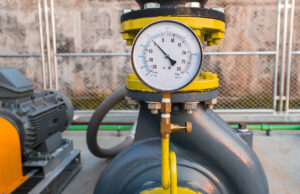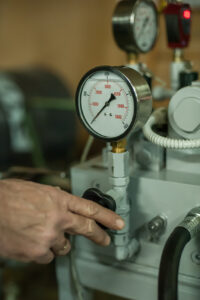Pressure gauges play a crucial role in the water treatment industry, where they help ensure the effective filtration, purification, and distribution of clean water. In this industry, pressure gauges are used in a wide range of applications, from monitoring pressure in water filtration systems to controlling the pressure in pipes and tanks at water treatment plants. Accurate pressure measurement is essential to maintaining the efficiency of these processes and ensuring that water is safely treated and delivered to communities.
One of the primary applications of pressure gauges in water treatment is in filtration systems. Water passes through various filters to remove impurities, and pressure gauges are used to monitor the pressure on either side of these filters. A drop in pressure might indicate that a filter is clogged and needs maintenance or replacement. Pressure gauges also play an essential role in reverse osmosis systems, where precise pressure control is necessary to push water through semi-permeable membranes, separating contaminants from the water.
In addition to filtration, pressure gauges are critical in monitoring and regulating pressure in water distribution systems. Ensuring that water is delivered at the correct pressure helps prevent pipe bursts and ensures consistent water flow to consumers. Pressure gauges used in the water treatment industry are typically made from materials that are resistant to corrosion, such as brass or stainless steel, to ensure long-term performance in wet environments.
To conclude, pressure gauges are essential in the water treatment industry for maintaining system efficiency and ensuring the consistent delivery of clean water. Their ability to monitor and control pressure in filtration and distribution systems makes them a key component in the production of safe, treated water for communities around the world.



